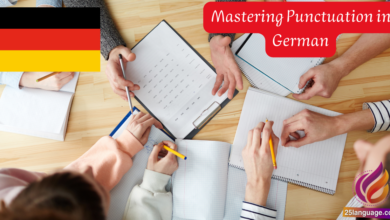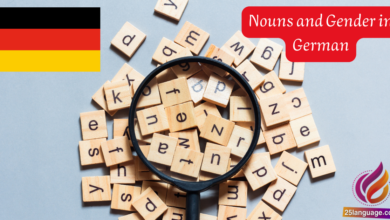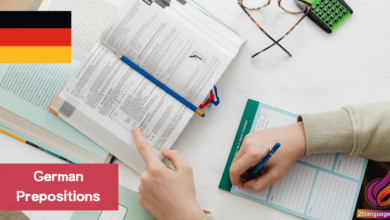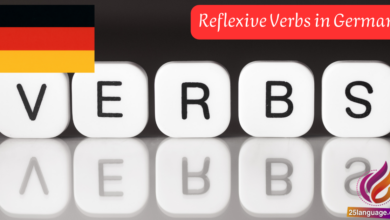German Grammar (Adjectives and Food)

This second lesson teaches many important aspect in German like adjectives, vocabulary list about food and finally common phrases about greeting. I will try to give examples using both vocabulary and grammar. That way it will be easy for you to see the words when they are separate and when they are in a sentence. Going through the whole page should take about 30 min. Make sure to read the pronunciation and hear the audio as well. If you have any question about this course, Contact us from the page German Classes.
Adjectives
Knowing adjectives in German is a powerful skill. It can make it easy to have a conversation about different topics by simply knowing some key words such as “good”, “bad”, “right”, “wrong” etc. Adjectives are words used to describe or modify another person or thing in the sentence for example: I am happy. German is easy.
Below is a list of 20 adjectives that you might come across or use very often. The table contains 3 columns (English, German, and Audio). Make sure you repeat each word after hearing it by either clicking on the audio button or by reading the pronunciation. That should help with memorization as well as improving your pronunciation.
Adjectives List in German
Now we will try to implement some of the words above into full German sentences. That way you will be able to use the word not only by itself but embedded in a structure.
German Adjectives in a Sentence
Questions?
If you have any questions, please contact me If you simply want to ask a question, please German contact form on the header above.
Vocabulary List about Food
Below is a list of 50 words related to food such as fruits, vegetables and edible items. If you can memorize them by heart, you will be able to buy many food necessities from the supermarket or off the menu in a restaurant without a problem.
Food List in German
Donations
Our goal is to make this site the best in the world and 100% free. Therefore, we invite you to donate to our site to ensure that the site continues to function permanently. You can support any amount you want through the following page Donate. If you cannot donate, please tell your friends about the site.
Daily Conversation in German
Finally, a list of sentences If you simply want to ask a question, please vocabulary used in this lesson plus some bonus phrases. For a complete list of commonly used sentences, please visit our German Phrases page. Enjoy!
Common Expressions in German
Fun Facts
Language Quote that a palindrome is a word, phrase, number, or other sequence of characters which reads the same backward or forward. Allowances may be made for adjustments to capital letters, punctuation, and word dividers.
Congratulations! You finished your second lesson in German about adjectives, and food. Are you ready for the next lesson? We recommend German Lesson 3. You can also simply click on one of the links below or go back to our Learn German homepage.





























